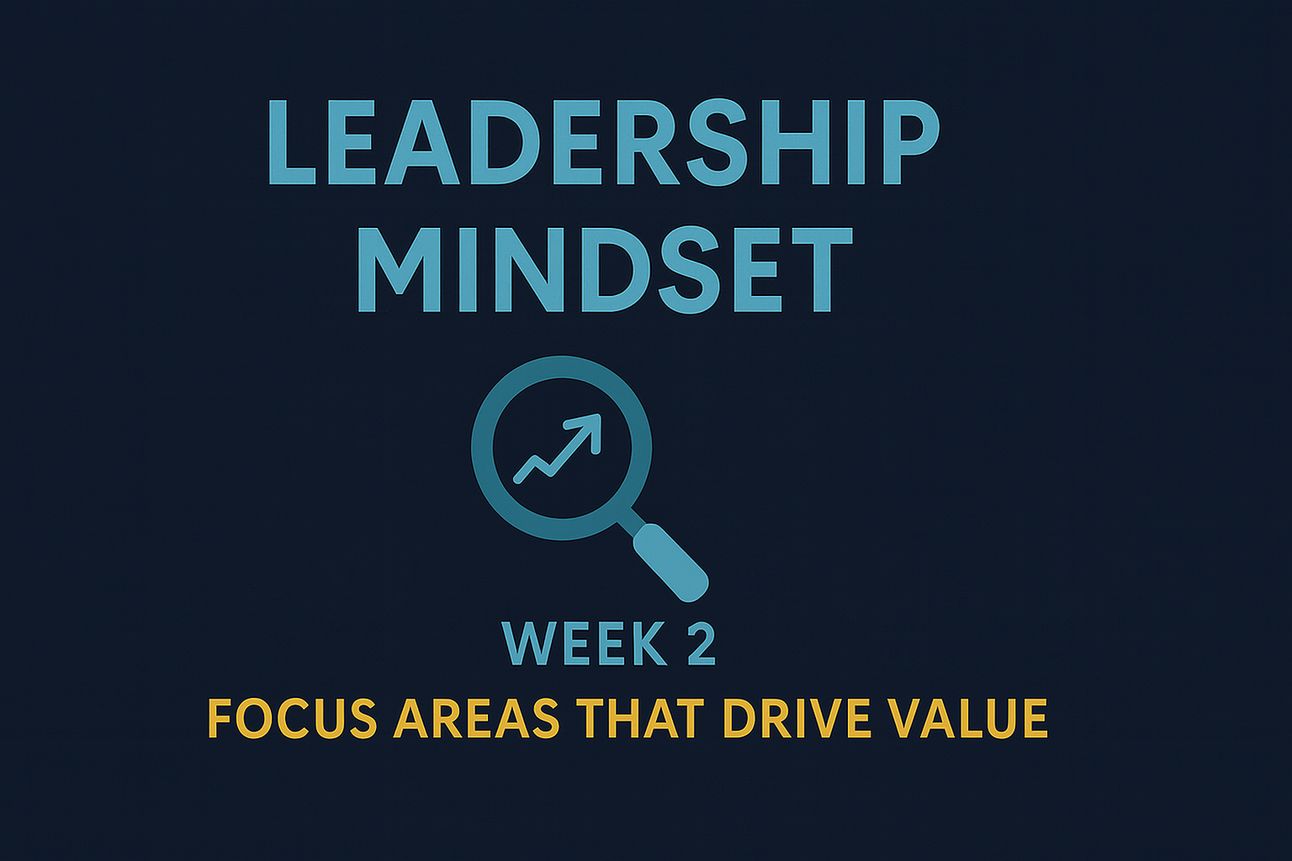Do you know why your position exists?
I wanted to start the first issue with a question. The main question we’re focusing on this week, to be precise. Each leadership position should add unique value to an organization. Some leaders focus on supervision, some focus on strategy development, and others focus on the company’s position in the market.
I never realized the limited impact I was having on the company until I refocused my efforts on the work I needed to be doing in my position as a leader of leaders.
Focus and Execute
Here’s how we can view the value each level brings to an organization.
Individual Contributor (IC): These workers do hands-on production work, customer-facing work, or both. They provide quality in the goods and services they deliver to the customer. The actions of ICs determine the reputation of the business. The focus of this position is to follow established processes to provide consistent, high-quality work on each task.
Front-line Leader (FLL): These leaders oversee the production work done by ICs, ensuring the work is completed on time to the specified standards. This role focuses on providing training, resources, and coaching to ICs to enhance the quality or volume of their output to meet the assigned team goals.
Leader of Leaders (LOL): These leaders oversee the leadership of their FLLs and provide them with a system—or collection of processes—to use to achieve the desired outputs. These leaders focus on creating, monitoring, and improving the system by making process changes and system changes that enhance throughput.
To put it in simpler terms, Leaders of leaders develop a sound strategy, which front-line leaders execute through an execution plan. Front-line leaders then ensure that individual contributors deliver the necessary standards to achieve the goals outlined in the plan.
Moving into a front-line leadership role means you stop producing and start making others better producers.
Moving into a leader of leaders role means you stop overseeing production work and start developing yearly operational plans that your FLLs can execute.
Why is changing focus so hard?
This idea seems simple, but why is it so hard to move from one level to the next? Two key principles from neuroscience help shed light on why moving up one level is hard. Changing your mindset is always challenging, and transitioning to a new leadership level requires you to update your leadership mindset.
Reward Prediction Error: Reward prediction error is the difference between the reward you expect and the reward you actually receive.
Loss Aversion: Loss aversion refers to the tendency for losses to loom larger than equivalent gains: the pain of losing $10 typically outweighs the pleasure of gaining $10.
ICs receive rewards for high-quality or high-volume production. FLLs receive rewards for team performance. Promotions force a rewiring of the reward-prediction process. Doing the same thing that led to a reward will no longer lead to a reward.
Losing the understanding of success compounds the rewiring of reward prediction in your brain. Now, you have to learn new methods of success, which can deliver greater rewards, but it means losing the old, trusted, and safe method of achieving rewards.
These two principles make it challenging to change levels, but when you understand the context, you can begin to shift your mindset and develop a new leadership mindset that is appropriate for your level of work.
Reflection Questions
Take a moment to reflect on the questions below to see if you’re aligned with the needs of your leadership position.
Why does my role exist in the organization?
What level is my role—IC, FLL, LOL?
What are the critical tasks in my role that add value?
Are these tasks the ones I value the most?
What skills would help me deliver better on the most valuable tasks?
Summary
Developing a leadership mindset involves focusing on the work that needs to be done and cultivating the skills that enable you to accomplish it. Understanding the primary focus of your role and the tasks that drive value will allow you to target specific skills that you can develop to maximize your leadership impact.
We’re diving into skills next week, which is how you ensure you can do the work that adds value at your level. Developing skills that are below or above your level will not help you add greater value to your organization.
Please let me know if you have any questions about the leadership levels or how to determine which level of focus applies to your current leadership position. I’m happy to answer questions directly at any time! Feel free to send me an email or submit it anonymously below for it to be featured in future newsletters.
Feel free to share this link or forward this email if you think someone else would enjoy it!
You can also check out one of my favorite newsletters to read:
A Private Circle for High-Net-Worth Peers
Long Angle is a private, vetted community for HNW entrepreneurs and executives ($5M-$100M net worth). No membership fees.
Connect with self-made peers in confidential discussions and live meetups.
With $100M+ invested annually, secure preferential terms unavailable to individual investors.

